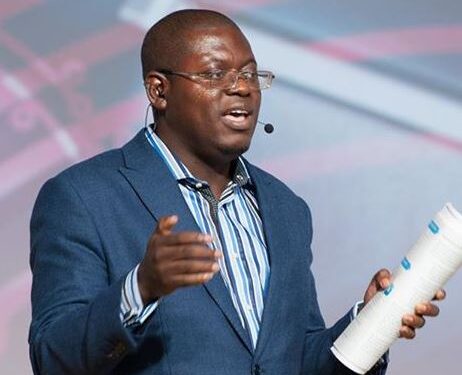African Countries Suffering From “Paradox of Essentialism” in Domestic Resource Mobilization
Honourary Vice President of IMANI Centre for Policy and Education, Bright Simons, has criticized what he terms Africa’s “paradox of essentialism” in attempts by African governments to boost domestic revenue mobilisation.
Speaking during a panel session on the theme: Safeguarding Domestic Resources in the Post-Global Aid World at a roundtable discussion on the sidelines of the ongoing IMF-World Bank Spring Meetings in Washington D.C., Mr. Simons argued that African governments often fail to invest in initiatives that are critical to the continent’s long-term development because such initiatives are mistakenly deemed “non-essential.”
“We suffer from what I call the paradox of essentialism, when we as Africans have to invest to solve our problems, a lot of the things that are important come across as non-essential,” he remarked.
Citing the African Union (AU) as an example, he bemoaned the fact that over 70% of the AU’s budget is funded by European partners and not African countries themselves.
“Because if you sit in Togo and you have to choose between building a school and paying dues to the AU, the AU dues are considered non-essential,” he explained. “But without a strong AU strategy, how do we negotiate global trade deals as a continent?”
He further recounted the challenges faced by a Ghanaian entrepreneur producing electric tricycles and bicycles. According to him, Ghana’s current automotive policy, which prioritizes large foreign car manufacturers, offers little to no support for smaller, innovative green businesses.
“She can make more of these eco-friendly bicycles and tricycles, but the policy doesn’t recognize it. The policy is focused on four-wheelers, not on innovative green alternatives that can be locally produced. And to get government to align policy and financing to support such innovation, it’s practically impossible,” he lamented.
Mr Simons speaking further during the panel session, stressed that policy misalignment and limited investment in innovation and soft development infrastructure such as education, entrepreneurship, and technology are holding back Africa’s efforts at boosting domestic resource mobilisation and escaping aid dependency.
“Even though certain things are extremely essential on the soft side of development, somehow African governments plausibly argue that they are not,” he stated.
He also underscored the impact of this paradox on efforts to boost tax-to-GDP ratio, a challenge many African countries face. Noting that the narrow definition of “essential” development items such as clinics and classroom buildings continues to restrict African policymakers from making bold policy choices that would expand the tax base and create inclusive growth.
“Until we do those things, forget about increasing tax-to-GDP ratios. The future of Africa lies in transforming the innovation landscape and enabling small businesses to scale,” he said.
Mr Simons concluded that the “paradox of essentialism” remains a major barrier to reform, stressing the need for deeper reflection and more strategic thinking around it.








